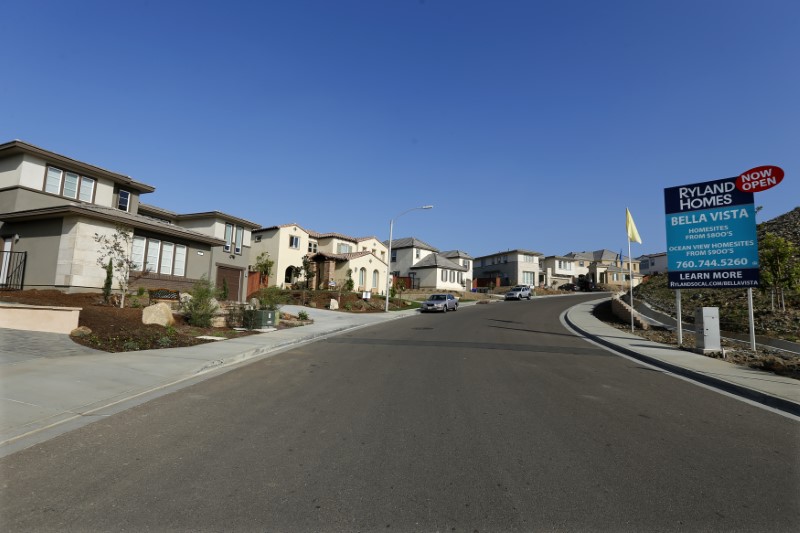By Lindsay Dunsmuir
WASHINGTON (Reuters) - New U.S. single-family home sales rose in May and the median sales price surged to an all-time high, suggesting the housing market had regained momentum.
The Commerce Department said on Friday new home sales increased 2.9 percent to a seasonally adjusted rate of 610,000 units last month. April's sales pace was also revised sharply higher to 593,000 units from 569,000 units.
Economists polled by Reuters had forecast new home sales, which make up about 10 percent of all home sales, rising 5.4 percent to a pace of 597,000 units last month. Sales were up 8.9 percent on a year-on-year basis in May.
"While the data quality of the new home sales report is notoriously poor, the general picture from this report and the existing home sales report is one of solid housing demand in the important spring selling season," said Michael Feroli, an economist with J.P. Morgan.
The housing market has been bolstered by continued strong job growth. The unemployment rate fell to a 16-year low of 4.3 percent in May and mortgage rates are still favorable by historical standards.
However, an increase in the cost of building materials and shortages of lots and labor have crimped homebuilding. With demand outstripping supply, house prices remain elevated.
The median house price rose to a record high of $345,800 in May, from $310,200 in the prior month. The average sales price last month was $406,400, also a record high.
The U.S. dollar pared losses against the yen after the data. U.S. stocks were trading modestly higher while prices of U.S. Treasuries edged up.
Across the nation's four regions, new home sales were mixed. They fell 25.7 percent in the Midwest and 10.8 percent in the Northeast, but rose 13.3 percent in the West and 6.2 percent in the South, which accounts for a large share of the housing market.
The inventory of new homes on the market increased 1.5 percent to 268,000 units last month.

At May's sales rate, it would take 5.3 months to clear inventory, unchanged from April. A six-month supply is seen as a healthy balance between supply and demand.